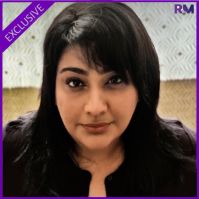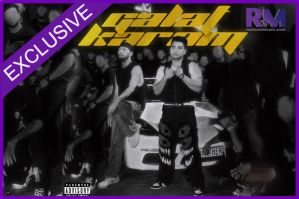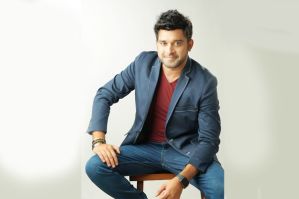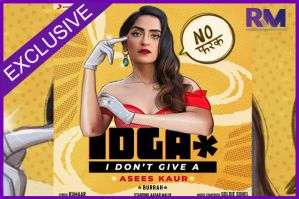Pakistani rock musician Mekaal Hasan - 'The way forward for bands is to make more videos'
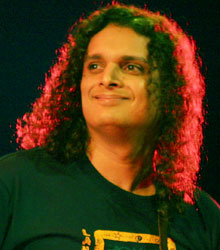
Mekaal Hasan is a leading musician and record producer from Pakistan, who has worked in the capacity of a guest artist and/or record producer in the Pakistani music industry with many Pakistani bands and solo artists at home and abroad. He is also the band leader and composer for perhaps Pakistan's critically acclaimed band, "Mekaal Hasan Band", known to its fans as "MHB". Mekaal also played bass as a guest artist for one of South Asia's leading rock bands ' Junoon'.
Excerpts:
Tell us a bit about your music career. How did it start?
I was surrounded by music since childhood. My grandma was pianist, and she taught me how to play the keyboard. My father's passion for jazz influenced me a lot. So basically music is in my blood. I was of 11, when I started playing some very basic piano and I took up guitar at the age of 16. After graduating from Government College, Lahore, I studied music at the Berkeley College of Music, Boston. My stay exposed me to a wide variety of music and musicians, many of whom I am influenced by to this day.
So how did you take a start in your music career in Pakistan after completing your education ?
I came back in 1995 and I set up a state of the art recording facility, Digital Fidelity Studio, where many of the top artists of Pakistan recorded and continue to record their music. Before putting the band in place, I was a guitarist and instrumentalist. I have a dual career basically. I am a record producer and sound engineer as well as being a guitarist, songwriter/arranger/composer and bandleader for MHB, which was formed in 2001.
So how did MHB meet and how did the music start?
The band started in 2001 and was formed as a result British Council tour featuring Pete Lockett and me. All the material written for that tour ended up forming the most of the music found on 'Sampooran'. The band's vocalist Javed Bashir came onboard in 2003 and has been featured on 'Sampooran' and the band's upcoming record 'Andolan'. Mohd Ahsan Papu, the band's flautist, has been with the band since 2001 and along with Javed and myself forms the core of the band.
Musical bands have always expressed through ideology by their songs and music, so does your music also define something special?
I like to think the band represents and reflects some of the subcontinents treasure classical brandishes and Sufi and traditional lyrics /melodies and that we present this material in a modernist and accessible manner via the kinds of musical arrangements and song writing found in our writing. The band's sound is unique because the melodic content is Eastern classical, but the songwriting is jazz-rock based and this makes the material exciting and sophisticated all at the same time.
So tell us something more about your first album - Sampooran?
The tunes on Sampooran were written incorporating traditional material from the eastern classical tradition and adapting these with music which was based on the jazz rock fusion explosion of the seventies. To this end, the album features two Shah Hussain Kaafi's, 'Rabba' and 'Sajan', two traditional classical ragas; Ya Ali, associated with Ustad Salamat Ali Khan and composed for the most part, in Raag Verag Todi, along with Raag Darbari (Yaray Mun Biya Biya), which is most closely associated with Ustad Amir Ali Khan Sahib of Indore. The great poetess Amrita Pretum, is paid a loving tribute by a unique rendition of Waris Shah, set in Raag Mehg.
Raag Charokashi, is featured in two tracks, namely the instrumental Late Moon and the tune Sanwal, which features lyrics by Farhat Abbass Shah. The title track, Sampooran is written in Raag Aiman, and incorporates the progressive nature of this band by moving through a few time signatures and themes before resolving to its main melody which each soloist uses as a cue for the start and end of his solo.
What do you attribute Sampooran's commercial success to?
The main reason for its success is that we had been playing these songs for live audiences in Lahore, Islamabad and Karachi, prior to the release of the album, so people were already aware of us. We made an attempt to establish a new market for the kind of sound we were making and it had a great result. It is not like popular music that people listen to that finds an instant appeal; it is progressive music that draws you in. It's like a slow sweet poisoning I guess!!
Describe your kind of music in one phrase.
That phrase would be "traditional music in a contemporary format."
Which age groups do you actually target with your music?
MHB is the first band on the Pakistani music scene that has targeted people from three generations. Children listen to our music, then we have a middle-aged audience between 20 to 40 years of age and finally we have the older generation following our music as well. This is an incredible achievement in itself. You can say that it's the only band in Pakistan that caters to such a wide range of audiences. Our concepts are very specialized.
What took you so long to come up with your second album Andholan?
Yeah... It has taken a little more time because I am very particular about songwriting. Also, I don't want to include more than seven or eight numbers in the album because I feel the human ear cannot absorb more numbers than that effectively and I want to work on quality based compositions so that I can maintain a high level of aesthetics and so that people remember the songs for a long time. The remaining space on the album will be covered with some interesting multimedia stuff like live jams, interviews.
Now the album has been shifted to late 2007 release. It was later reported that every song on the new album would be turned into a video first. Is it true?
The only way for bands to go forward and actually expand their fan base is to do more videos. Videos make the material accessible and that means more work, which means more funds to put back into the music. But no one wants to see the same kind of video, over and over again with a different song in the backdrop. So while our forte has been performance videos, we will be moving away from that after the first three videos from Andholan.
Any suggestions for the improvement of the music industry?
I feel now is the right time for professional record labels and professional management companies to step in and take over in organising the industry. The government needs to chip in as well. They should build proper concert halls, provide subsidies for musicians, and not tax the music equipment that we bring in because it's for professional use. They need to recognise music as a profession. On the Indian side of things, the tax levied on artistes from Pakistan is 42.5 per cent.
The government has to be more accommodating to artists who have business dealings in India because it's hurting not only us but also the very companies whose financial wellbeing is tied in with the band's growth. EMI Music, our record company, which also manages us, has not only got the uphill task of breaking MHB into a market dominated by Bollywood, but also the even more difficult task of having us priced competitively.
Who are your favorite Indian and international singers?
Some of my favorites are Jayanth Bose, Asha Bhoslay, and bands like Indian Ocean. Shankar, Ehsaan and Loy are great too and I think they, along with Vishal /Shehkar have changed the trend and sound of Bollywood music. Their sound is hip and contemporary and I appreciate that a lot because in a weird sort of parallel way I'm trying to make traditional music sound more hip and contemporary too. There are many to name and if I start naming all it will be practically the entire industry!
How does it feel to perform in India?
It feels really great… we are very happy with the response we have received from the Indian audiences it is very encouraging to see that people are so receptive to a band as unique as MHB.






